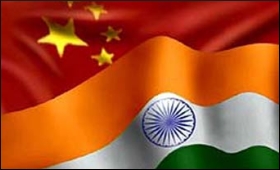|

|
India, China-like strong trade linkages key to recovery: IMF
|
|

|
|
| Top Stories |
 |
|
|
|
Arun Kumar | 22 Jun, 2010
Citing India and China's faster recoveries thanks to their strong trade linkages, the International Monetary Fund (IMF) has advised other emerging market economies (EMs) to similarly protect themselves from future shocks.
"EMs with substantial trade links to other fast-growing EMs, such as India and China, could see faster recoveries," the IMF said Monday in a paper examining the performance of 57 EMs during the recent global financial crisis.
"Thus trade linkages amplified both the initial impact of the crisis and the recovery from it, said noting: "Markets do discriminate across emerging market economies (EMs) and prior progress was rewarded."
"Countries that entered the crisis with lower vulnerabilities had worked to reduce them in the preceding period," the IMF noted, highlighting "the need for EMs emerging from the crisis with high vulnerabilities to protect themselves against future shocks."
"It also underlines the relevance of vulnerability indicators for IMF surveillance and policy advice," said the 186-nation organisation that oversees the global financial system
Describing trade linkages as an important determinant of output collapse, the IMF said: "EMs experienced an additional 1.5 percentage point reduction in real output during the crisis for every percentage point fall in domestic demand in their advanced economy trading partners."
Large EMs, for whom exports formed a smaller component of their aggregate demand such as Indonesia and India, consequently experienced smaller real shocks, it said.
China, Egypt, India, and many other EMs that also either grew through the crisis or experienced a small adverse impact, had large domestic markets, the IMF pointed out.
As to be expected, recovery was helped by growth in trading partners, the IMF said, pointing "to one of the risks in the outlook for EMs: a double-dip recession in AEs (advanced market economies) could jeopardise EM recovery."
This could be especially important for EMs that rely heavily on external demand from a larger partner, such as Mexico on the US, it said.
Countries with flexible exchange rate regimes are also recovering faster than those with pegs, even after controlling for external vulnerabilities and the initial fall in output, the IMF said.
While "a wholesale slide into protectionism-akin to that seen during the Great Depression-has been avoided during the current crisis," it warned, "pressures could still emerge".
"While several countries have adjusted national tariff schedules during the crisis, the general trend of declining tariffs was not materially affected during the crisis.
"Nevertheless, the number of trade dispute filings, such as for anti-dumping, have increased in recent years, a trend that intensified during the crisis. The majority of such disputes are between EMs - almost three-quarters of new investigations in the second half of 2009 - with Argentina and India accounting for a large share," it said.
Similarly, more than half of new investigations have been targeted against China. There has also been a corresponding increase in the number of import restricting measures as a consequence of these disputes, the IMF said.
|
|
|
| |
|
|
|
|
|
|
|
|
|
|
|
|
|
|
| |
| Customs Exchange Rates |
| Currency |
Import |
Export |
US Dollar
|
84.35
|
82.60 |
UK Pound
|
106.35
|
102.90 |
Euro
|
92.50
|
89.35 |
| Japanese
Yen |
55.05 |
53.40 |
| As on 12 Oct, 2024 |
|
|
| Daily Poll |
 |
 |
| Do you think Indian businesses will be negatively affected by Trump's America First Policy? |
|
|
|
|
|
| Commented Stories |
 |
|
|
|
|
|
| |
|